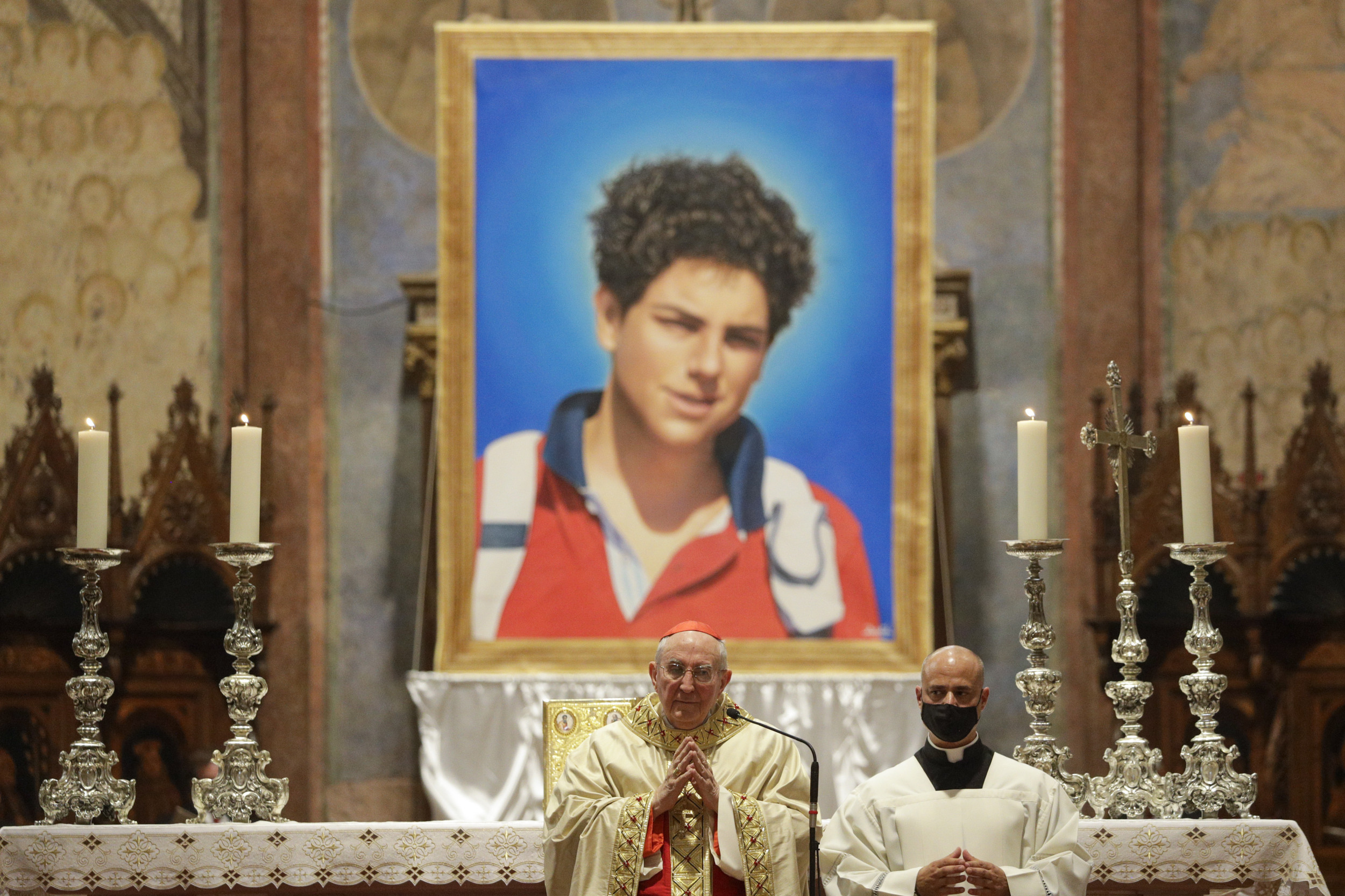
The Vatican has postponed the canonization of Carlo Acutis, who was set to become the Catholic Church’s first millennial saint, following the death of Pope Francis on April 21.
Acutis’ canonization was scheduled for April 27 in St. Peter’s Square and expected to draw thousands of visitors. Vatican officials said the decision to delay the ceremony was made immediately after the Pope’s passing, in line with traditional protocol during a “sede vacante” period—the time between the death of one pope and the election of another.
With the Catholic Church now entering a period of mourning and transition, the ceremony that would have marked a significant milestone in modern Church history is on hold.
AP Photo/Gregorio Borgia
Who was Carlo Acutis and why is he considered a saint in the Catholic church?
Carlo Acutis was born on May 3, 1991, in London and grew up in Milan, Italy. A devout Catholic from a young age, he is best known for creating a website cataloging Eucharistic miracles around the world.
He gained international recognition for his use of technology to spread the Catholic faith, cataloging over 150 Eucharistic miracles in about two and a half years.
Acutis, who died of leukemia at age 15 in 2006, is credited with saying: “People who place themselves before the sun get a tan; people who place themselves before the Eucharist become saints,” according to the Catholic News Agency.
His beatification ceremony took place in the St. Francis Basilica in Assisi, Italy, on October 10, 2020. The ceremony is the first step toward sainthood.
Two miracles have been attributed to him, fulfilling a key requirement for sainthood under Church rules. Per CBS, Acutis is credited with healing a Brazilian child of a congenital disease affecting his pancreas and healing a college student in Florence who had a brain bleed after suffering blunt head trauma in a bike accident.
His canonization was approved by Pope Francis and the cardinals in July 2024, a process that was scheduled to conclude this April before being interrupted.
What is canonization?
Canonization is the formal process by which the Catholic Church declares a deceased person a saint. It involves an investigation of the person’s life, writings, and deeds to ensure they lived a life of heroic virtue. The process includes several stages: servant of God, venerable, blessed (through beatification), and finally, saint (through canonization).
Miracles attributed to the individual’s intercession are usually required—one for beatification and a second for canonization.
The final step is a public canonization ceremony, typically led by the Pope, where the person is officially added to the canon, or list, of saints.
Why did the Vatican postpone Carlo Acutis’ canonization?
The death of Pope Francis prompted the Vatican to suspend the canonization.
The Church follows certain procedures during the “sede vacante” period. Without a reigning pope, the Vatican halts any activities that require papal authority, including canonizations. Though Acutis had already been approved for sainthood by the College of Cardinals, a pontiff must be present for the public proclamation.
